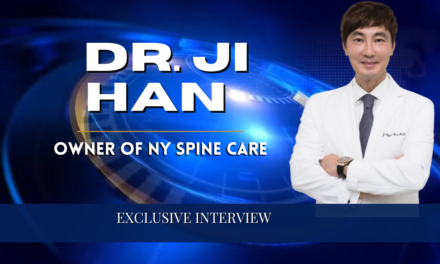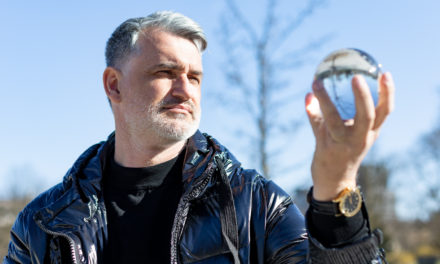Copyright by Dr. Al Sears MD.
Imagine your heart can only pump 15% of the blood it usually does with each beat.
So it tries harder and harder… Then blood builds up behind your heart, flooding your lungs, causing your heart to swell up like a balloon.
With less blood flow to your brain, you get dizzy and confused and eventually organs like your lungs, brain, and kidneys stop working from the loss of oxygen-carrying blood.
This is congestive heart failure (CHF).
Today, I’ll show you why the mainstream “solution” only makes the problem worse, and how a pioneering cardiologist is bringing heart patients back from the brink of death.
Most Doctors End Up Decreasing Your Heart’s Output…
Doctors will tell you to stay in bed and take meds like diuretics, beta-blockers, statins and other CHF and heart drugs.
By following that recommendation, you’ll eventually drown in your own blood.
The beta-blockers doctors prescribe decrease your cardiac output. Even worse, the statins they prescribe dramatically deplete your body’s CoQ10 levels and steal your heart’s pumping power.
The solution to congestive heart failure is increasing cardiac output, not bedrest and drugs.
Bringing CHF Patients Back From Near Death
Dr. Peter Langsjoen found that when he quadrupled the levels of CoQ10 in heart failure patients, heart function improved by a jaw-dropping 88%.
This improvement was measured by the ejection fraction. This is a critical measure of how much blood the left ventricle pumps with each contraction.1 Figuratively speaking, he brought his patients back from the dead.
His studies also revealed that higher blood levels of CoQ10 and the improved ejection fractions were accompanied by remarkable clinical improvements.2,3
But most interesting was how he raised their levels.
A Better, More Bioavailable Form of CoQ10
By switching to 450 mg of the “reduced” form of CoQ10, a more powerful and bioavailable form called ubiquinol, their blood levels of CoQ10 doubled to 4.1 mcg/mL.
Studies show significant benefit in heart failure patients with a plasma CoQ10 level of around 4 mcg/mL.4
If you’re healthy, I recommend at least 50 mg of ubiquinol every day. There are huge benefits for your heart, brain, gums, blood pressure, energy levels and more. Ubiquinol is 8X more absorbable than the conventional CoQ10 you’d find at your local drug store. In fact, 50 mg of ubiquinol is equal to 400 mg of conventional CoQ10.
But if you’re taking statins, you should boost your daily ubiquinol intake to 200 mg. Clinical studies show statins can lower CoQ10 levels by as much as 40%, making your heart even weaker.5
For CHF, raise the dosage starting at around 200 mg to 450 mg. In my clinic, I increase the dose by 50 mg until I reach a minimum therapeutic blood level of at least 2.5 mcg/mL. Getting your blood levels checked is the only real way to know where you stand.
Some of the best sources of CoQ10 are beef, chicken and fish. But if you suffer from CHF, chances are your levels are already low, which means you should supplement.
There’s only one manufacturer that makes ubiquinol, a Japanese company called Kaneka. There are many brands that use ubiquinol, but it all comes from the same place.
To Your Good Health,


Al Sears, M.D., is a practicing physician with extensive experience in the fields of complementary and natural healthcare. The recommendation and materials on this site represent his opinion based on his years of practicing medicine. The information and material provided on this site are for educational purposes only and any recommendations are not intended to replace the advice of your physician. You are encouraged to seek advice from a competent medical professional regarding the applicability of any recommendations with regard to your symptoms or condition. It is important that you do not reduce, change or discontinue any medication or treatment without consulting your physician first. The personal stories shared on the website or magazine are personal to the users and will not be typical of the results you will have if you follow the advice provided on the website or magazine.
View or Buy the Print Magazine Here
REFERENCES:
- Langsjoen PH and Langsjoen AM. “Supplemental ubiquinol in patients with advanced congestive heart failure.” Biofactors. 2008;32(1-4):119-128.
2. Langsjoen P. 5th Annual International CoQ10 Symposium. Kobe, Japan: November 9-12, 2007.
3. Langsjoen PH and Langsjoen AM. “Coenzyme Q10 in cardiovascular disease with emphasis on heart failure and myocardial ischaemia.” Asia Pacific Heart J. 1998;7(3):160-168.
4. Langsjoen H, et al. “Usefulness of coenzyme Q10 in clinical cardiology: A long-term study.” Mol Aspects Med. 1994;15 Suppl:s165-75.
5. Langsjoen PH, et al. “Role of concomitant coenzyme Q10 with statins for patients with hyperlipidemia.” Curr Topics Nutr Res. 2005;3(3):149–158.




